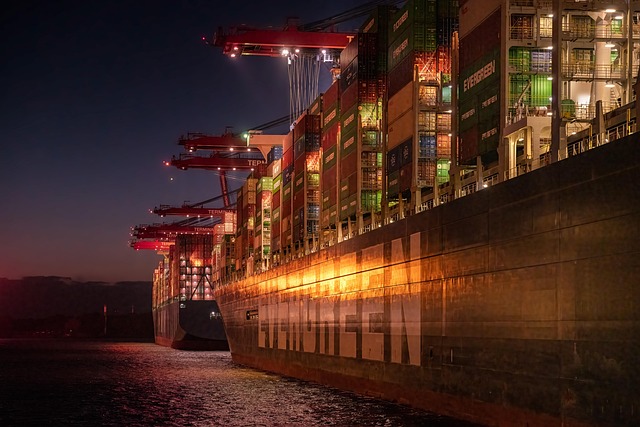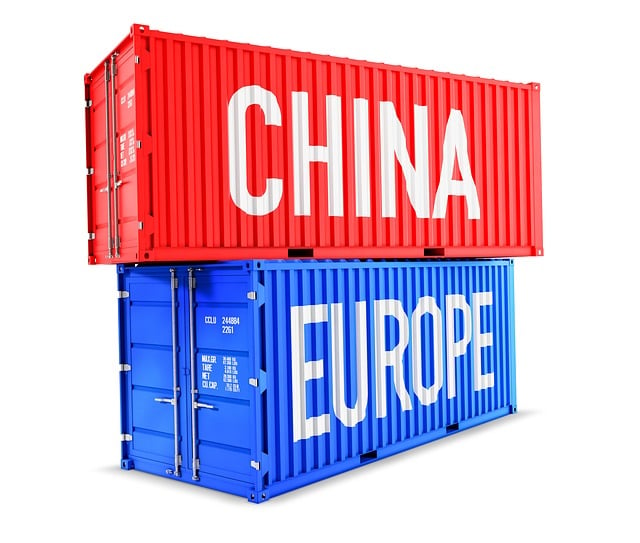Shipping containers have revolutionized global logistics with their versatile designs and efficient transport capabilities. From intermodal to refrigerated, various types cater to diverse cargo needs, while their standardized dimensions enable seamless stacking and transportation. Beyond shipping, these containers serve as flexible storage solutions and even living spaces, with a global network of depots facilitating leasing and rental services for businesses worldwide. ISO containers lead the way in international trade, enhancing efficiency, capacity, and cost reduction through seamless intermodal transitions.
“Shipping containers, once confined to transporting goods across seas, have emerged as versatile industrial assets with endless possibilities. This compact yet robust solution has seamlessly integrated itself into various sectors, revolutionizing logistics and streamlining operations. From manufacturing hubs to bustling cities, standardized containers are transforming commercial applications. Discover how these seemingly simple structures are a game-changer in modern industry, enhancing efficiency, reducing costs, and opening new avenues for businesses worldwide.”
- Shipping Containers: A Versatile Industrial Asset
- Commercial Uses of Standardized Containers
- Transforming Logistics: Container Innovation
Shipping Containers: A Versatile Industrial Asset

Shipping containers have emerged as a versatile industrial asset, revolutionizing the way we move and store goods globally. More than just a means of transport, they are now integral to various industries due to their unique attributes. These robust, standardized boxes come in diverse types like intermodal, sea, ISO, refrigerated, flat rack, open top, high cube, and more, each tailored for specific cargo needs.
Their modular design allows them to be easily stacked, loaded, unloaded, and transported over land or sea, making container shipping efficient and cost-effective. Shipping containers also serve as flexible storage solutions, with options like office, storage, and even living spaces, showcasing their adaptability. The global network of container depots and ports further enhances their accessibility, ensuring smooth container leasing, rental, and transport for businesses worldwide.
Commercial Uses of Standardized Containers

Standardized shipping containers have transformed commercial operations globally due to their versatility and efficiency. Beyond mere transportation, these containers serve diverse purposes in various industries. In retail, they’re utilized as pop-up stores and temporary shops, offering flexible and cost-effective solutions for expanding businesses. Additionally, the real estate sector leverages container conversions into offices, cafes, and even hotels, showcasing their adaptability to meet unique spatial demands.
In logistics, intermodal containers facilitate seamless container shipping between sea, rail, and road transport, streamlining global trade. Refrigerated containers ensure the safe transit of perishable goods, while flat rack and open-top containers accommodate oversized or unconventional cargo. High cube and standard ISO containers provide ample storage space for a wide array of products, making them indispensable in warehousing and distribution centers. Container leasing and rental services further enhance their accessibility, enabling businesses to scale operations without significant upfront investments.
Transforming Logistics: Container Innovation

The evolution of shipping containers has transformed logistics and revolutionized global trade. These versatile freight containers, such as ISO containers, have become the backbone of modern supply chains. Their ability to seamlessly transition between modes of transport—from sea container shipping to intermodal container transport—has made international commerce more efficient than ever before.
Containerization has not only streamlined the movement of goods but also increased the capacity and reduced the costs associated with cargo transport. With various types available, including refrigerated containers, flat rack containers, high cube containers, and modular containers, these shipping crates can adapt to virtually any requirement, whether for storing perishable items or providing mobile offices at remote locations. The flexibility and scalability of container shipping, coupled with options for leasing or rental, have made them indispensable in both industrial and commercial applications, ensuring efficient container transport and a robust logistics network.
Shipping containers have evolved from mere transportation tools to versatile industrial assets that are revolutionizing logistics across various sectors. Their standardized dimensions and robust construction make them adaptable for both commercial and industrial applications, enhancing efficiency in supply chains worldwide. As innovation continues to transform the landscape of shipping, these containers will undoubtedly remain a vital component in meeting the demands of today’s dynamic market.
